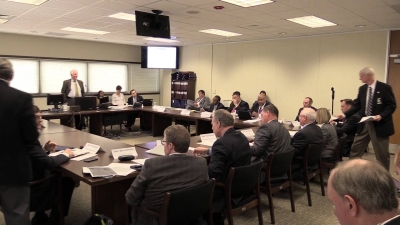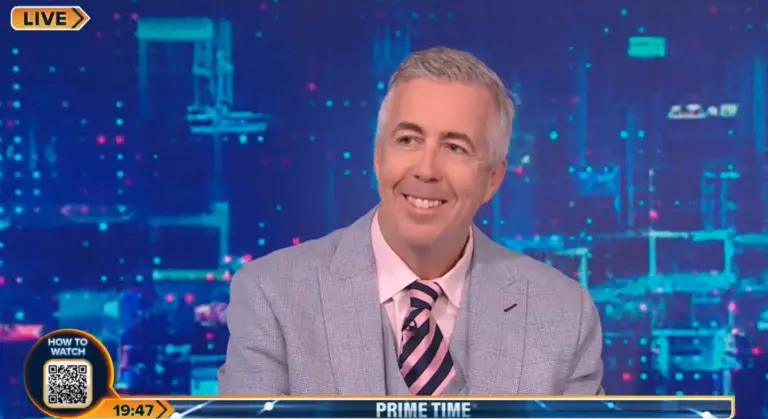To paraphrase Animal Farm, all select committees are equal, but some are more equal than others. Some, such as the Administration, Members’ Expenses or Finance committees play an important role in overseeing the day-to-day work of the House of Commons and support services to MPs. Others, like the European Scrutiny and Regulatory Reform committees, scrutinise the huge volume of regulations produced by the UK and EU governments for which there would never be enough time to debate fully in the Commons chamber.
But, when it comes to identifying the committees that shape the agenda in Westminster – and which ambitious backbenchers would sell their granny for a seat on – some clearly stand out. (Nobody ever came to Westminster with a burning desire to get a place on Lords EU Sub-Committee F).
Our top three most influential select committees would be:
The Public Accounts Committee – Described by constitutional expert Professor Peter Hennessey as “the queen of the select committees…[which] by its very existence exert[s] a cleansing effect in all government departments,” there should be no doubt that the PAC (as it is informally known) is the single most powerful committee in Parliament. Created in 1861 by then-Chancellor William Gladstone to scrutinise government expenditure, its power and influence has grown and grown in the ensuing 150 years and gives the committee a unique remit to scrutinise all Whitehall departments and public spending in general. The committee is also unique amongst select committees in that its work is backed up by a dedicated staff of audit professionals – the National Audit Office (which has some 800 staff). Government failures brought to light by the PAC include the NHS National Programme for IT (described as one of the worst fiascos ever in the history of public sector contracts) and the decommissioning costs of the Sellafield nuclear reprocessing site (£67.5 billion, with “no indication of when that cost will stop rising”). The PAC also recently quizzed the boss of Google over the company’s controversial tax arrangements.
The chairmanship of the PAC is always held by an Opposition politician, usually a former minister such as Margaret Hodge, Joel Barnett (who as Chief Secretary to the Treasury in the 1970s invented the Barnett Formula) or David Davis (who had been John Major’s Europe Minister). The committee also provides a good springboard for the ambitious – David Davis used his period as chair (1997-2001) to lay the foundations for two (admittedly unsuccessful) attempts at the Conservative leadership, while Harold Wilson was chair of the PAC for four years (1959-63) before succeeding to the Labour leadership (and the premiership).
The Treasury Select Committee – This committee’s power and influence is derived from the importance of the institutions it monitors. Its brief not only includes scrutinising the work of the Treasury but also HM Revenue and Customs, the Bank of England, the Prudential Regulation Authority, the Financial Conduct Authority, and even the Royal Mint. The Committee regularly interrogates the nation’s top bankers, regulators and other City ‘rainmakers’ and played a major role in examining the factors that led to the recent financial crisis, giving it a significance and profile greater than many other departmental select committees.
The Treasury Select Committee gained extra powers in 2010, including the right to veto appointments to the independent Office for Budget Responsibility (OBR).
The Culture, Media and Sport Committee – it may seem counter-intuitive to include this committee on a list of the most powerful given that it scrutinises the work of a Government department that has one of the smallest budgets in Whitehall, but seats on this committee are a highly-prized commodity amongst MPs. Not only does membership put MPs in a great position to receive tickets at major sporting or cultural events, but the committee’s work has a whiff of glamour lacking from the ‘to-do’ list of other select committees. The committee conducts pre-appointment hearings for those being lined up for top media jobs – such as Chair of the BBC Trust, Chairman of Ofcom and has held recent investigations into the future of FIFA, nuisance calls, the future of the BBC, gambling and the handling of complaints against the press. The committee hit the front pages in 2011 when Rupert Murdoch was hit in the face by a cream pie whilst giving evidence to the committee’s inquiry into phone hacking – an evidence session that the Guardian described as “the most important Select Committee hearing in parliamentary history”.
Tom Watson successfully used his time on the committee – and his high-profile campaign against the Murdoch press – as a platform that has catapulted him into the deputy leadership of the Labour Party. John Whittingdale’s ten-year tenure as the committee’s chair (2005-15) proved an excellent preparation for his subsequent appointment as Secretary of State at DCMS in 2015.




